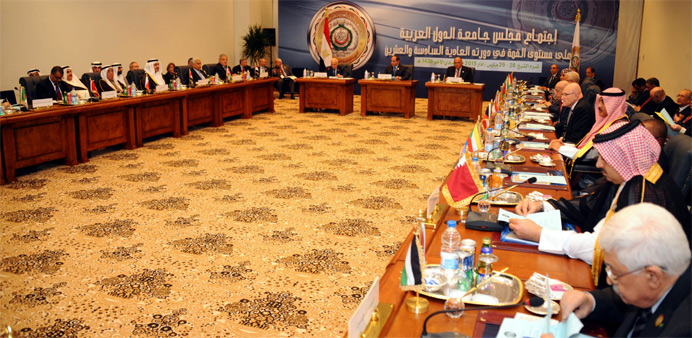* Arab leaders announce formation of unified regional force
* Region faces growing security challenges
* Arab summit call on Houthis to withdraw after gains in Yemen
Reuters/Sharm el Sheikh, Egypt
Arab leaders at a summit in Egypt announced the formation of a unified military force to counter growing security threats from Yemen to Libya and as regional heavyweights Saudi Arabia and Iran engage in sectarian proxy wars.
Working out the mechanism and logistics of the unified force, an idea floated by Egyptian President Abdel Fattah al-Sisi, could take months.
Previous similar schemes have failed to produce tangible results in the divided Arab world. The dangers facing the region are stark and complex.
While conflicts intensify in Yemen and Libya, the civil war in Syria is entering its fifth year. Egypt, the most populous Arab state, faces an Islamist militant insurgency.
Islamic State militants have taken over swathes of Iraq and Syria and spawned splinter groups across the Arab world. The United States and other major powers are seeking a final nuclear deal with Iran, in a process that worries many Arab leaders wary of Iran's growing regional influence.
The summit final communique called for "coordination, efforts and steps to establish an unified Arab force" to intervene in countries such as Yemen.
The move came after Saudi Arabia patched together a 10-nation Arab coalition against Houthis fighters and launched military strikes there on Thursday.
Arab leaders said the Saudi-led operation in Yemen would continue until the Iranian-allied Houthis, who have made rapid advances, withdraw and hand over their weapons and the country is united.
The Saudi-led operation in Yemen has underlined the rivalry between the predominantly Sunni kingdom and Iran.
Chaos in Libya may be one key test for the unified force if it intervenes in a country with factions allied to two governments, vying for control of territory and oil facilities.
Sisi has repeatedly called for concerted Arab and Western action against what he sees as an existential threat posed by militant groups operating in Libya and elsewhere.
He ordered air strikes against Islamic State militants in Libya after the ultra-hardline group beheaded 21 Egyptian Christians there.

